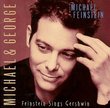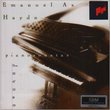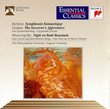| All Artists: Ludwig van Beethoven, Richard Strauss, Berlin State Opera Orchestra Title: Beethoven: Symphonies Nos. 5 & 7 Members Wishing: 0 Total Copies: 0 Label: Naxos Original Release Date: 1/1/2026 Re-Release Date: 9/26/2000 Genre: Classical Styles: Historical Periods, Classical (c.1770-1830), Modern, 20th, & 21st Century, Symphonies Number of Discs: 1 SwapaCD Credits: 1 UPC: 636943192627 |
Search - Ludwig van Beethoven, Richard Strauss, Berlin State Opera Orchestra :: Beethoven: Symphonies Nos. 5 & 7
 | Ludwig van Beethoven, Richard Strauss, Berlin State Opera Orchestra Beethoven: Symphonies Nos. 5 & 7 Genre: Classical
Richard Strauss maintained a career as a conductor during most of his adult life, and he left recordings of significant works by other composers. Unfortunately, most of them were early electrical recordings, in quite poor ... more » |
Larger Image |
CD DetailsSynopsis
Amazon.com Richard Strauss maintained a career as a conductor during most of his adult life, and he left recordings of significant works by other composers. Unfortunately, most of them were early electrical recordings, in quite poor sound. Beethoven's Symphony No. 5, recorded in 1928, is a powerful performance, vigorous and aggressive and bristling with energy. Beethoven's Seventh Symphony was recorded only two years earlier, but it sounds much more primitive, because an inferior recording system was used. The frequency response is barely superior to an acoustic recording, and the performance would be difficult enough to enjoy even without the large cut that disfigures the fourth movement, probably made to keep the recording from running onto another 78 rpm record side. Restorer David Lennick has left enough surface noise behind to be disturbing. The Fifth Symphony still comes across, though, and the disc is worth hearing just for that performance, but it could have sounded considerably better. --Leslie Gerber Similarly Requested CDs
|
CD ReviewsStrauss's Ante-Postmodern Beethoven Thomas F. Bertonneau | Oswego, NY United States | 10/30/2000 (4 out of 5 stars) "Naxos is swiftly releasing their digitally refurbished edition of Polydor's Beethoven symphony-cycle from the late 1920s. Prior to Polydor's effort, no one had ever produced a complete cycle of the nine symphonies before, although by 1930 all nine were available individually in those heavy, multi-platter sets. We already have Hans Pfitzner's "Eroica" with the Berlin Philharmonic, from 1929. Now comes Richard Strauss conducting the Fifth and the Seventh, from 1928 and 1926 respectively, remastered by David Lennick. Strauss leads the Berlin State Opera Orchestra. What are the pros and cons of this release? I'll list the main reservations first: Unlike the Pfitzner "Eroica," a superior recording for its time with a fair spread of frequencies in the master-platters, the Strauss performances suffer from a constricted sound. Then, in the Finale of the Seventh, Strauss makes a big cut - presumably, as Rob Cowan writes in the excellent notes, to fit the entire movment on one 78rpm side. Now to the recommendations: As a conductor, Strauss anticipates what the "period" blokes of the reigning generation, like Norrington and Gardiner, have done with Beethoven. (Forecasting them, yet being their distant precursor, I think of Strauss the conductor as an "Ante-Postmodern.") Strauss took Beethoven's metronome markings seriously and tried to obey them. This can lead to music that sounds wildly fast to our ears, as in the whirlwind Finale of the Seventh. On the other hand, the non-lingering, unrhetorical approach makes the concert-worn First Movement of the Fifth sound quite fresh. For this abused and fatally overplayed symphony, that is really saying something. I'd say that overall these performances make Beethoven new for ears that are jaded by a tired, automatic tradition in distractingly ultra-shiny digital sound. One sign that this CD will mean something to you is if, on contemplating your Bernstein or von Karajan cycle, you feel yourself suddenly overcome by soul-numbing ennui. At budget price, this issue will make a fine complement to modern recordings of the same works." A Victorious Fifth John Atherton | CINCINNATI, OHIO United States | 11/25/2004 (5 out of 5 stars) "In fact, I believe this is the greatest performance of the Fifth ever committed to disc. As another reviewer notes, Strauss anticipated today's historically informed bunch, eschewing the Wagnerisms of Furtwangler and sticking to Beethoven's more classical drama. A reputedly unsurpassed Mozartian, Strauss reminds us that Beethoven never lost his love of Mozart. This Fifth is swift, transparent -- it's simply more musical than any other I've heard.
Sadly, the Seventh is not on this plane, interpretively or sonically, although much better transfers (by Ward Marston) of both these recordings are available on Koch 3-7115- 2 H1." |

 Track Listings (8) - Disc #1
Track Listings (8) - Disc #1![Vivaldi's Ring of Mystery [With CD]](https://nationalbookswap.com/cd//m/30/0730/80730.jpg)








